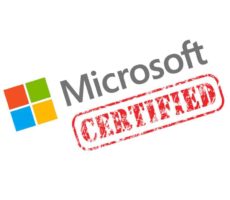Landing a job at the ripe age of 19 can feel like showing up to a potluck with only your appetite. You’re eagerly ready to contribute, but just can’t seem to find that starting dish. If you’re staring down the daunting path of job-hunting with a resume as blank as a brand new notebook, take a deep breath.
In this blog post, we’re going to walk you through the steps of securing your first job, even when your experience column is playing hide and seek. Let’s equip you with the practical tools and tips to bag that job and step confidently into the world of work.
What Can You Do to Identify Your Skills?
Believe it or not, you’ve been honing valuable skills long before your first official job. It’s time to take stock of what you’re good at.
Start by reflecting on any responsibilities you’ve managed at school, during extracurricular activities, or even within your family. Did you ever organize a class project or help plan a family event? Those project management skills are golden.
Create a list, and be sure to cover these bases:
- Communication Skills: Maybe you’ve mediated disputes among friends or presented class assignments. These are clear signs of a communicator in the making.
- Tech Know-how: Plenty of us are digital natives without even realizing it. Are you the go-to person for tech troubleshooting among your peers? That’s a skill on the rise.
- Leadership: Did you captain a sports team or lead a group project? Those experiences translate directly to leadership potential in the workplace.
Here’s a pro tip that’s often overlooked: your hobbies and interests can also reflect job-related skills. Are you a gamer? Strategic thinking and problem-solving are second nature to you. Do you enjoy blogging or creating content for social media? That’s content creation and marketing—both highly sought-after skills.
When employers skim your resume, they’re not just looking at work experience—they’re also looking for transferable skills that demonstrate you’re the right fit for the job.
How Can You Gain Experience Without a Job?
It’s the classic catch-22, isn’t it? You need experience to get a job, but you need a job to get experience. But hey, there are plenty of smart ways to break out of that loop.
Volunteering: It’s not just about giving back—nonprofits often offer roles that provide substantial experience. Whether helping organize events or managing social media pages, it’s real work that counts.
Internships: Sure, you might fetch a few coffees, but you’ll also get a foot in the door and learn from professionals. It’s a fantastic way to get a taste of an industry.
Online Courses: The internet is bursting with learning opportunities. Platforms like Coursera, Khan Academy, and Udemy offer courses in everything from graphic design to coding—all at your fingertips.
Personal Projects: Got an idea for an app or interested in building a blog around a passion of yours? Go for it! Initiating and executing a personal project shows drive and ingenuity.
Remember, these experiences are all resume-worthy and talk about them during interviews to showcase your proactive attitude.
What’s the Best Way to Network When You’re Starting Out?
Networking isn’t just a buzzword; it’s about forming genuine connections that can lead to opportunities. Here’s how to do it right from square one.
- Start with Who You Know: Reach out to family, friends, and acquaintances. You never know who might offer a lead or intro.
- Join Professional Groups: Websites like Meetup.com have industry-specific groups that host events and workshops.
- LinkedIn: It’s a goldmine for networking. Create a profile, follow industry leaders, engage with content, and don’t shy away from sending a friendly connection request with a personalized message.
- Informational Interviews: Got your eye on a company or a role? Reach out to someone who’s already there and ask if they have time for a quick chat to share some insights.
The unique tactic? Offer to help or provide value first before asking for anything. Could you share an interesting article with a new connection, or volunteer at an event they’re hosting? By doing so, you’re showing genuine interest and it can set you apart from the crowd.
Networking is a bit like planting seeds; it takes time for relationships to grow into opportunities. Keep at it, stay curious, and most importantly, be yourself—people can tell when you’re being authentic, and that’s always the best way to connect.
How Should Your Resume Look When You Lack Experience?
Crafting a resume without work experience can feel like trying to paint a masterpiece with a bare canvas. However, remember that even the most celebrated artists started with a blank slate. Your resume might not have the professional experience section filled in, but it can shine with your unique blend of skills, education, and potential. Here’s how to make your resume stand out when your job history is still on the horizon.
Highlight Your Skills
Your resume should begin with a bold and engaging summary that focuses on the skills you bring to the table. These could be transferable skills like communication, problem-solving, or even leadership abilities you’ve honed in school projects or volunteering.
- Include a “Skills” section: Right off the bat, show off the skills that make you a great candidate. If you’re bilingual, that’s a huge plus. Proficiency in computer software relevant to the job? Jackpot!
- Quantify your achievements: Maybe you’ve increased social media engagement for a school event by 50%, or raised significant funds for a local charity. These numbers grab attention and help recruiters gauge your potential impact.
Education and Certifications
Your academic achievements can often compensate for your lack of job experience. This is where you dial up the details on your education.
- List relevant coursework or projects: Include any courses or projects that have given you a foundation relevant to the job. For instance, if you’re applying to a tech startup, citing your school project on app development will resonate well.
- Mention certifications: Don’t shy away from listing online courses or certifications you’ve completed, especially if they’re pertinent to the job you’re eyeing. Sites like Coursera or LinkedIn Learning offer a plethora of courses that can bolster your resume.
Personal and Volunteer Projects
The volunteer work or personal projects you’ve been a part of are gold mines for showcasing your commitment and skills.
- Highlight leadership roles: Even if it was in a school club or a local community group, a leadership role signals to employers that you’re capable of taking charge and working with a team.
- Detail what you’ve learned: Don’t just mention your role; talk about what you accomplished and how it honed your skillset.
Tailor Your Resume to the Job Description
One size doesn’t fit all, and this is especially true for resumes. Tailor your resume to echo the job description using keywords and phrases that show you’ve done your homework and understand what the job entails.
The Devil is in the Detail
Now, here’s the unique tip that most brushes aside but can really set you apart – infuse your resume with personality. Do you have a personal mantra, or a quote that inspires your work ethic? Include it. This isn’t typical advice, but it can add a dimension to your resume that intrigues the reader and underscores your individuality.
Example: “Driven by the belief that ‘every drop counts,’ I consistently seek ways to contribute to team goals, whether through meticulous data analysis or proactive problem-solving.”
Professional Layout and Design
Finally, ensure your resume looks professional:
- Keep it clean: Use a clean font and layout. Bullets, not paragraphs, should list your skills and achievements.
- Use color sparingly: If you decide to use color, less is more. Stick to one or two colors for headers or lines to keep it polished.
- Proofread, proofread, proofread: Nothing undermines a good resume like typos. Triple check your resume, or better yet, have someone else do it for you.
To get a handle on how the pros do it, websites like Canva offer resume templates tailored to those with minimal work experience. Meanwhile, Purdue OWL provides detailed pointers on resume writing that can be extremely valuable when drafting your first copy.
Remember, you’re not just a piece of paper; you’re a story waiting to unfold. Your resume is merely the preface to your career narrative, so make it resonate with who you are and the value you’re poised to bring to any employer. Your journey is unique, and with a resume that reflects your potential and spark, you’re well on your path to penning your first professional chapter.
How Can You Ace the Interview With Minimal Experience?
Landing an interview can be a big win when you’re 19 and lacking experience. It means your resume snagged the employer’s attention, and now it’s showtime – time to let your personality and potential shine through. Here’s your game plan to ace that interview and make a lasting impression:
Brush Up on the Company and Its Culture
First things first, you’ve got to know who you’re dealing with. A peek behind the curtain can reveal the company’s values, goals, and how they jive with your own aspirations. Websites, press releases, and even the company’s presence on social media platforms can be goldmines for information. Take notes – they’ll come in handy later.
Showcase Your Soft Skills
Soft skills are your secret weapon. They’re the personal attributes that enable you to interact effectively with others and are often just as crucial as hard skills. What exactly should you emphasize, you ask?
- Communication Skills: Being able to clearly express ideas is key, so tell a story that demonstrates your ability to resolve a conflict or organize an event.
- Teamwork: Love it or hate it, working with others is a part of most jobs. Recall a project or time when you collaborated successfully, whether it was on a school project or organizing a community event.
- Adaptability: In today’s ever-changing world, the ability to pivot is priceless. Describe a situation where you had to adjust to new circumstances – like transitioning to online learning.
- Problem-Solving: Think of a time you faced a challenge and came up with a creative solution – this could be something as simple as fixing a bug on your computer or helping a family member troubleshoot an issue.
Flaunt Your Willingness to Learn
In the absence of professional experience, your thirst for knowledge can be incredibly compelling to a potential employer. Chat about how you enjoy picking up new skills and are eager for opportunities to grow. That coding course you took online or the time you self-taught guitar? Yeah, that’s the good stuff.
Practice Your Responses
Typical interview questions can throw you for a loop if you’re not prepped. Do a couple of mock interviews with a friend or in front of a mirror. This practice helps you to think on your feet and to word your thoughts in a clear, concise manner.
- Tell Me About Yourself: Craft a short narrative that summarizes who you are, what you’ve accomplished, and where you see yourself going.
- Why Should We Hire You?: Here’s your chance to sell yourself by linking your strengths and willingness to learn with what the company needs.
- Where Do You See Yourself in Five Years?: This classic question tests if you’ve set sights on a goal and if your ambitions align with the company’s track.
Dive Into Your Passions
Employers love candidates with a fire in their belly. Dive into topics you’re passionate about – this can reveal drive and determination, qualities every employer admires. Did you orchestrate a fundraiser that soared beyond its goal, or commit to an intense fitness routine? These narratives can offer compelling insights into your character.
Ask Insightful Questions
As you wrap up, flipping the script and asking insightful questions can distinguish you further. Inquire about professional development opportunities or the company’s future goals. This demonstrates proactivity and indicates that you’re already invested in the company’s success.
Pro-tip: Amidst all this, don’t forget to mind the basics — punctuality, a firm (not bone-crushing) handshake, maintaining eye contact, and of course, flashing a sincere smile. They might seem trivial, but they go a long way in making positive first impressions.
Last but not least, bring a unique asset to the table that other candidates might overlook: your perspective as a young individual in tune with current trends and new ways of thinking, especially if it’s relevant to the company’s industry.
Remember, interviews can be daunting, but with preparation and a dash of charisma, you’ve got this! Your age and lack of experience aren’t roadblocks; they’re stepping stones to your next great adventure. So, take a deep breath, count your blessings, and walk in there ready to show ’em what you’re made of!
Quick Takeaways
March into the job market with a playbook that turns lack of experience into a launchpad for success:
- Skill Inventory: Catalog your capabilities, chart your course. Transform everyday skills into resume gold—communication, tech savvy, leadership.
- Experience Engineering: Manufacture momentum without a job. Volunteer, intern, and course-create your way to a fillable resume.
- Interview Intensity: Enter the arena armed with company knowledge, soft skills, and a learner’s lightning. Practice makes your pitch perfect, passion makes it powerful.







![How to Get a Job at Bridgewater Associates? [Tips] How to Get a Job at Bridgewater Associates](https://howmonk.com/wp-content/uploads/2023/12/How-to-Get-a-Job-at-Bridgewater-Associates-300x233.webp)


